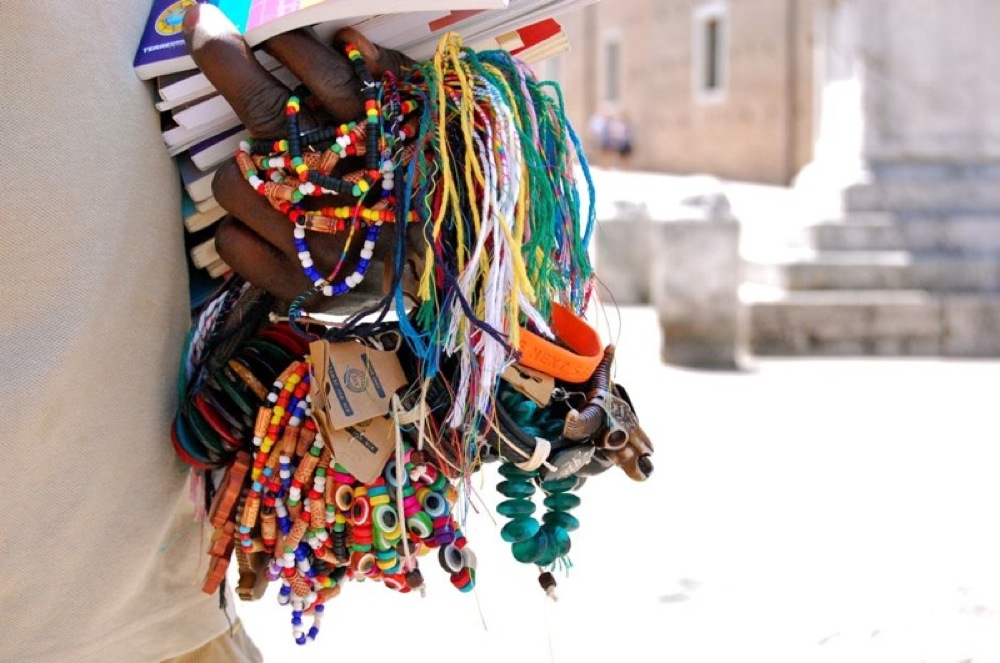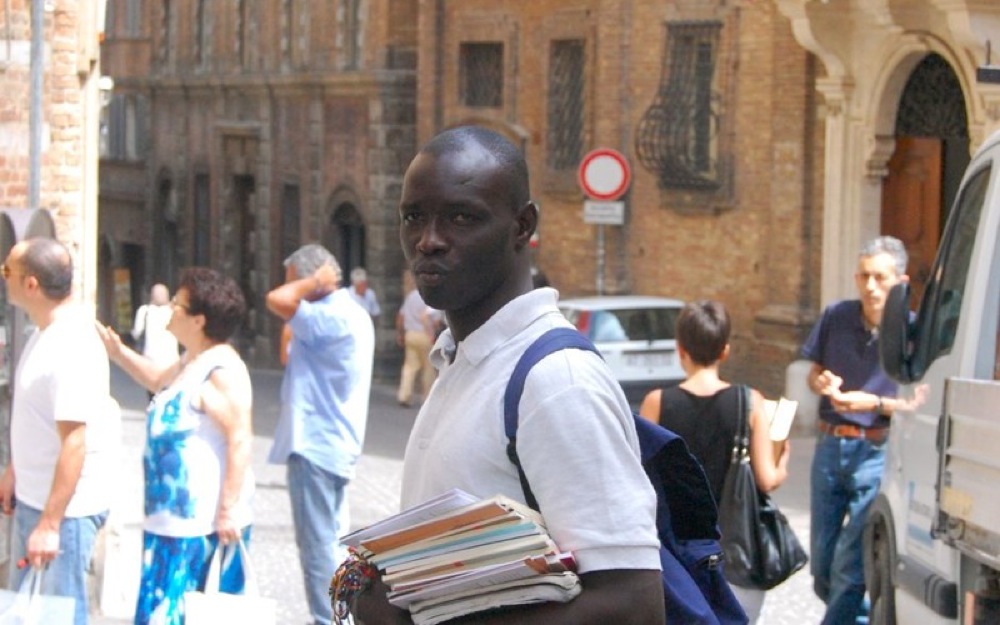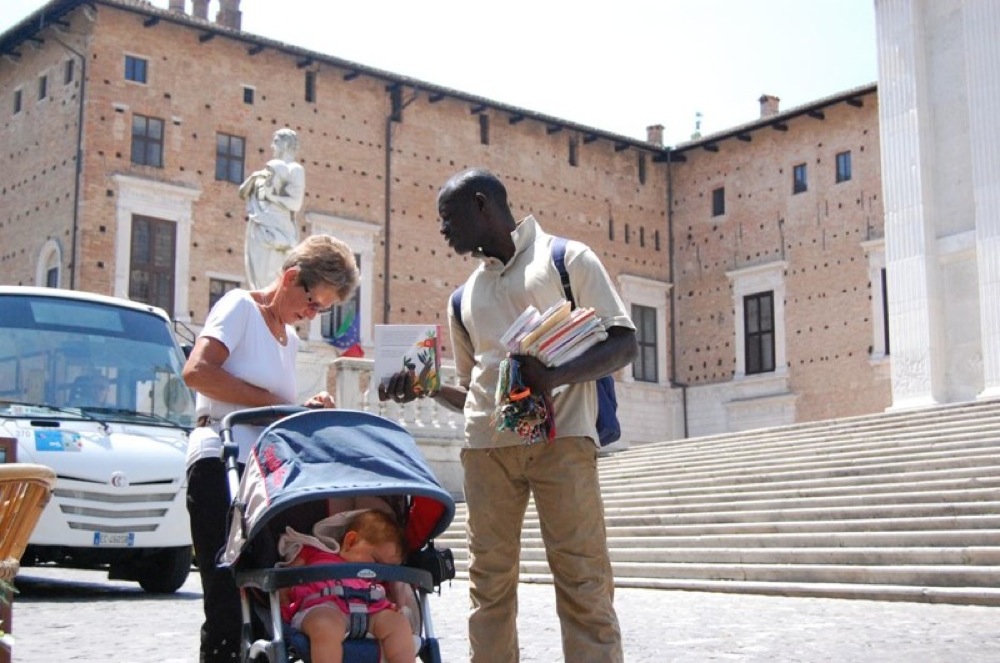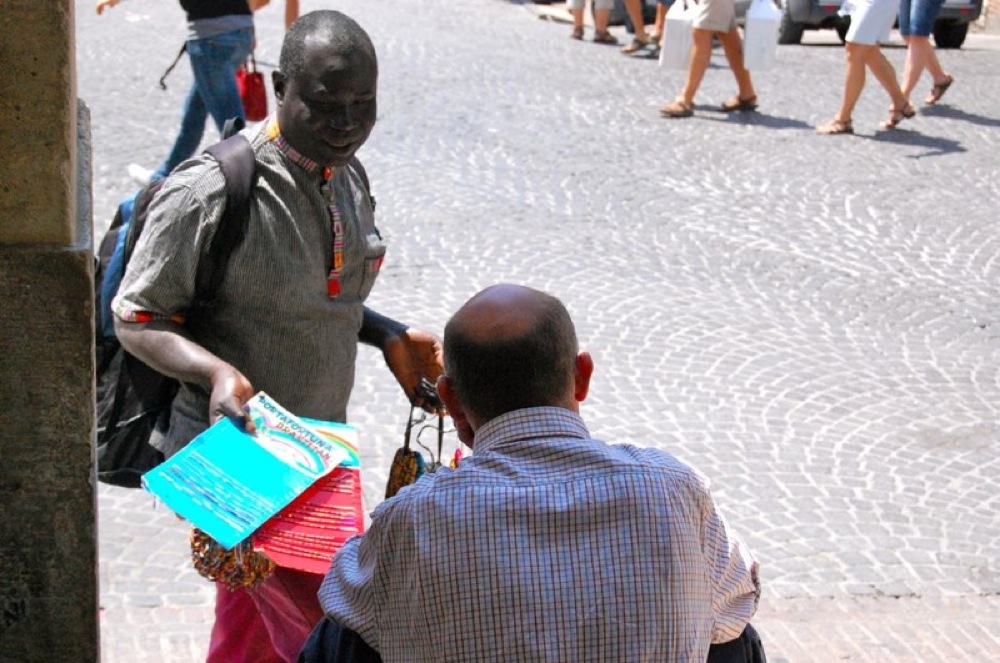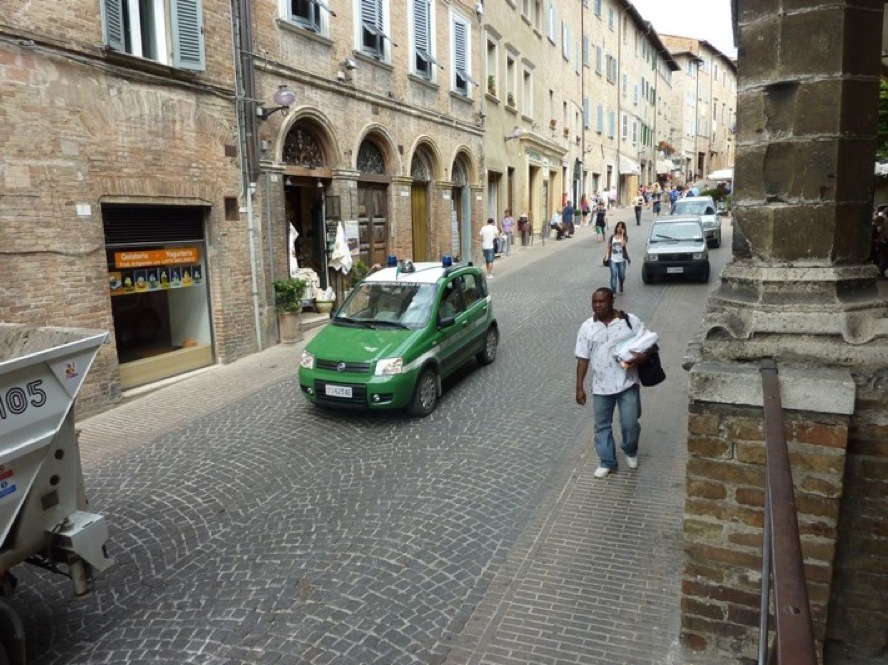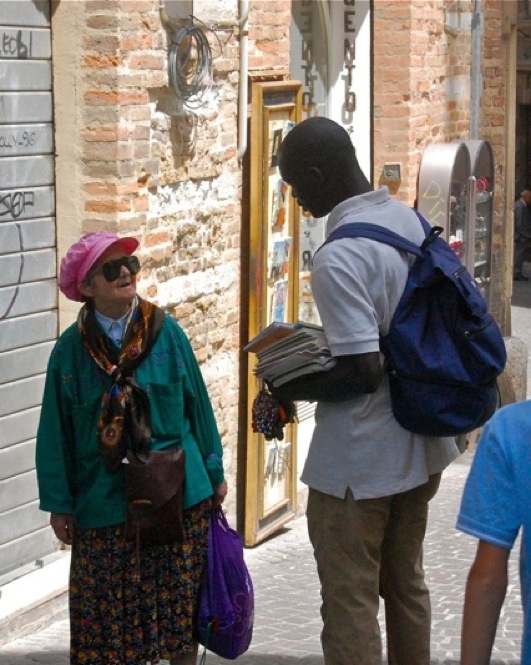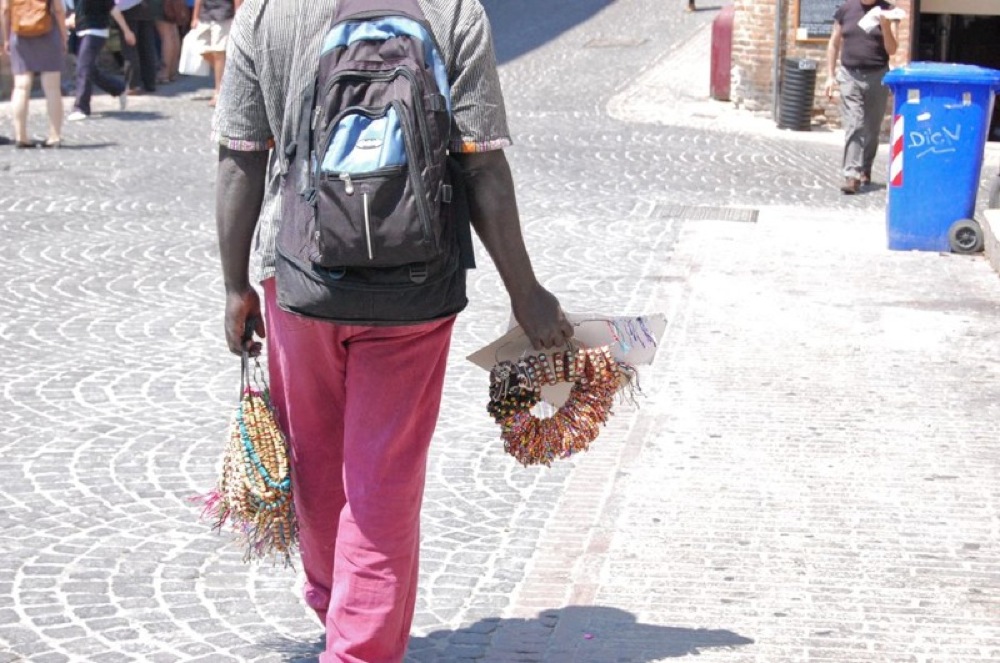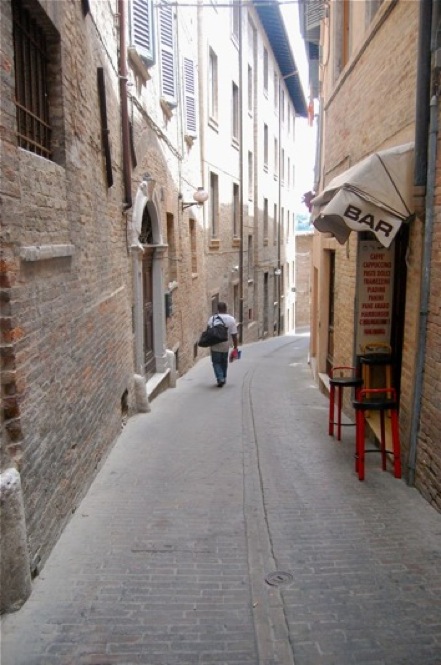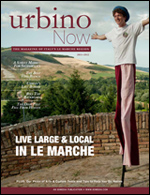African immigrants find a niche as street vendors in Urbino. Although it’s a tourist town, it’s not an easy place to survive that way.
URBINO, Italy — Against the light-colored stone of the piazza and the almost entirely white population of Urbrino, Frank Sunday does not blend in well.
As he gets closer, his voice further separates him from the crowd with his African accent. He leans toward a group of students with a soft, “Ciao, ragazzi.”
They smile, shake their head and wave him off with a “no, grazie.”
Sunday is a 29-year-old Nigerian immigrant who first came to Italy four years ago. Every day, he sells merchandise on the streets of Urbino. He swings colorful bracelets, small books and socks in his outstretched arms as he saunters down the cobblestones in his worn Puma tennis shoes.
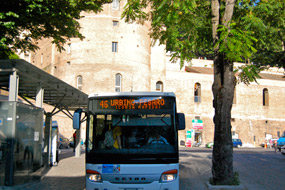
Frank Sunday catches the bus just outside the city walls back to Pesaro, where he lives with other Nigerian immigrants.
He is one of about half a dozen North African immigrants who live in Pesaro on the Adriatic and take buses daily to Urbino to sell merchandise. With a political science degree from University of Benin in Nigeria, he has a different story than most of the other sellers. But his struggle to make a little money is the same.
Sunday said most immigrants come to Italy to make money and send profits home to their families. He is earning money for himself, hoping to obtain a higher education degree and then re-enter the political world in Nigeria. Sunday, who lives off of the wages he earns by selling small items on the street, is a self-described politician and refugee.
He said the best chance to make a sale is in the late afternoon when most stores close and local activity slows for “pausa.” That’s when the most tourists will be in and around the piazza.
I say maybe the people who buy this, they make no use of it, but they see me and they buy something out of the goodness of they heart, because they are a Christian people.
This small window of opportunity seems to be an unprofitable time for foreigners like Sunday to be hawking saint bracelets and brightly colored crafts in the main square. Widely ignored by the locals and snubbed by the student population, these street sellers are admittedly reliant on sympathy in order to make a sale, Sunday said. “I say maybe the people who buy this, they make no use of it, but they see me and they buy something out of the goodness of they heart, because they are a Christian people,” he said.
Mid-conversation, Sunday looks on warmly at a graduate celebrating with friends, wearing a laurel corona and cheering loudly. Sunday pauses and smiles to himself, taking in the scene. He says the spectacle reminds him of his days in Nigeria at school with his friends.
Some immigrants have their papers in order. But Sunday says he spent eight months in a Libyan prison after a failed attempt to cross the Mediterranean in a small boat. Now, he is on his way to being a legal citizen and has begun to pay taxes in Italy. Other street vendors refused to discuss their immigration status.
“Urbino is the same as every other city in Italy,” Sunday said. “I have lived many places and it is no different.”
While Sunday is ambivalent about the city he relies on, the citizens of Urbino are just as ambivalent toward the immigrants’ plight.
Urbino locals have observed a change in the street vendors’ presence over the past few years. The unemployment rate in Italy was 8.5 percent as of 2010, according to the U.S. Department of State Website.
But even with economic recession and the loss of jobs, Urbino Mayor’s office spokesperson Gabe Cavalera said the Africans do not compete for locals’ jobs.
The State Department Website agrees, saying that those of a lower social status, like the African immigrants, are forced into the jobs no one else will take, with minimal pay and without social benefits or protections.
Sunday’s future remain undetermined, but he is confident his political ambitions will one day lead him into public office back in Nigeria. He hopes one day to change his home country for the better. He plans to be the President of Nigeria.
Until then, Sunday said he will continue to live wherever his Christian life leads him “by the grace of God.”
Slideshow
Click on Image to Show in Lightbox.
